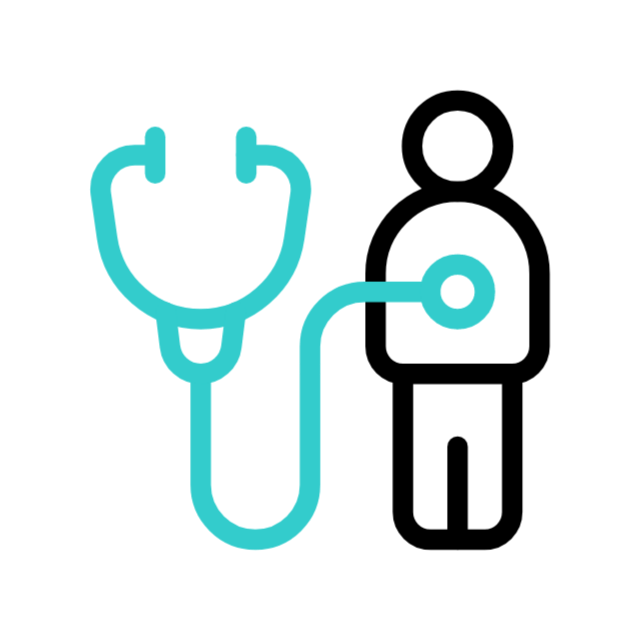ENT (Otolaryngologist)

Hearing Imparity
Hearing impairment or hearing loss is the partial or total inability to hear. It may be mild, profound, and experienced in one or both ears. It is usually divided into three subtypes: conductive (outer or middle ear), sensorineural (inner ear or auditory nerve) hearing loss, and mixed (combination of both). The causes may be age-related, exposure to loud noise, infections, genetic conditions or head injury.
Symptoms of Hearing Loss
- Trouble Hearing Speech: Muffling of words and other sounds, particularly in busy conditions or when speaking on the telephone, are some of the most frequently observed symptoms. Others usually ask people to repeat themselves.
- Increased Volumes: Some people might have to raise the volume of a TV or radio set or any other device to levels that are not comfortable to others.
- Tinnitus: Ringing, buzzing, or hissing in the ears, called tinnitus, often happens with hearing loss, which may be an initial sign of inner ear destruction.
Effects of Hearing Impairment
- Communication and Social Isolation: Hearing impairment will make it hard to talk, and after short periods, one may get frustrated and withdraw from socialising. This may lead to social isolation and loneliness, which are associated with several other health issues.
- Cognitive Decline: Some studies have indicated that there is an association between untreated hearing loss and the acceleration of cognitive decline and dementia. The brain functions less efficiently with reduced auditory input, causing it to exert itself to understand the auditory presentation, potentially precluding other neurological activities such as memory and attention.
- Poor Development in Children: A hearing disability may cause a severe disturbance in language and speech development. This might cause learning issues, academic inabilities and adverse social skills.
Tinnitus
Tinnitus refers to hearing of sound in the ears or the head in the absence of external sound. It can be defined as a ringing, buzzing, hissing, whistling or clicking sound. Tinnitus is not a disease; it is a symptom of another disease. Many causes are possible, including age-related impairment and hearing loss, public exposure to loud noise, earwax, some medications, and Meniere's disease. Tinnitus may be both short-lived and a debilitating symptom.
The signs of Tinnitus
- Perceived Sound: The most common sensation is ringing, buzzing, or hissing, audible only to the patient. It may be monotonous or less regular, and change in tone and ferocity.
- Hearing Loss: A certain level of hearing loss comes along with tinnitus. The hair cells in the environment pass sound to the brain, which is damaged in many people with tinnitus.
- Stress and Anxiety: Stress and anxiety, or tiredness, may encourage tinnitus or worsen it. An individual might realise that tinnitus is more hostile when stressed.
Effects of Tinnitus
- Interrupted Sleep and Concentration: The continuous noise may affect a person's ability to sleep or maintain sleep. It also reduces concentration/ reading, and completion of daily chores and significantly affects performance at work and school.
- Psychological Distress: The presence of tinnitus is another cause of much psychological distress, which may include anxiety, depression, and a short temper. The persistence that is always present in the sound may be an irritation and the feeling of having lost control.
- Auditory hyperactivity: The brain usually attempts to compensate for the hearing deficiency by increasing activation in the parts of the brain that process sound. This acoustic hyperactivity is considered to be the explanation of the phantom of tinnitus. Tinnitus, in certain instances, may be intense and may make the person unable to hear other sounds.
Throat Infection
Throat infection, or pharyngitis, is the inflammation of the pharynx, which is the rear side of the throat behind the mouth. It is most commonly a result of a viral or bacterial infection. Although the most common types of throat infection are viral infections, including the common cold, it is also possible to get a bacterial infection, such as strep throat, and these need antibiotics. Both have sore throat as a hallmark symptom, but differences exist in other symptoms, which can be used to distinguish between the two.
Signs of a Throat Infection
- The sore throat: The most significant symptom is an aching, painful, scratchy, or raw sensation in the throat, which in many cases, becomes worse on swallowing.
- Swollen Tonsils and Redness: A physical examination would show the presence of swollen tonsils that could be red and have either white spots or pus, in the case of strep throat. There is also a possibility that the back of the throat is very red and swollen.
- Other symptoms: A throat infection may also be caused by other symptoms such as fever, headache, aches in the body and rash, depending on the cause. The chances of a cough and runny nose, which makes the viral infection likely, are lower with strep throat.
Consequences of throat infection
- Difficulty Swallowing and Pain: This may also be accompanied by swallowing pain because of the inflammation. This may result in a lack of interest in food (loss of appetite) and dehydration.
- Transmission of Infection: Bacterial infection may spread to other parts of the body when not treated. For example, strep throat may cause a middle ear infection or, more rarely, rheumatic fever, which later results in irreversible heart damage.
- Voice Changes: The swelling may affect a person's voice because the vocal cords become hoarse or muffled.
Speech
Speech is the process of sounding language, which is a multitasking process that requires the shared work of the lungs, the vocal cords, the tongue, teeth and the lips. It is the first channel of human communication by which we realise thoughts, emotions and needs. In case the process is thwarted, it may result in a speech disorder or speech impairment, which can assume many forms.
Signs of a Speech Disorder
- Stuttering: This is a typical sign manifested by repetition of sounds, syllables or words, lengthy sounds coupled with the inability to block or freeze when attempting to speak.
- Articulation Problems: A person might experience a problem pronouncing certain sounds, and the person may develop a lisp, may replace one sound with another, e.g. he may say wabbit when it should be rabbit.
- Voice Problems: Signals might incorporate a profoundly raspy, hoarse or breathy voice. A pitch change, loudness, or vocal strain can also point to a vocal cord issue.
Consequences of a Speech Problem
- Social and Emotional Impact: It is referenced that the most common impact is social anxiety and the sense of frustration and humiliation. Individuals affected by speech disorders might even push themselves away in social contexts because they do not want to feel misinterpreted.
- Academic and Professional Issues: Mandate issues with communication might cause problems in a school or work setting, including difficulty taking part in classroom discussions or making presentations.
- Miscommunication: Fundamentally, a speech disorder may manifest in ongoing miscommunication in which other people fail to understand or misunderstand a speaker, impeding relations and regular interaction.
Breathing Issues
Respiratory disorders, also known as breathing issues, influence the lungs and other elements of the respiratory system, increasing the difficulty breathing. Some of the conditions may be minor, such as an asthma attack and permanent conditions such as Chronic Obstructive Pulmonary Disease (COPD). Breathing is a fundamental aspect of life, and any form of disability always affects the well-being and life improvement of the people involved.
Symptoms of Breathing Problems
- Dyspnea: The significant sign is a sense of not getting enough air. This may happen both during exercise and even when lying down.
- Wheezing and Coughing: A wheezing sound when taking air in (wheezing) or a cough, which is recurring and produces extra mucus or phlegm, is another typical indication of a respiratory problem.
- Chest Pain and Tightness: Tightness or pressure in the chest can be a sign of many breathing problems, either a severe attack of asthma, or something worse, such as a pulmonary embolism.
Impacts of breathing problems
- Hypoxia is the worst effect of hypoxia, which is defined as when the body or a part of the body does not receive sufficient oxygen supply. It may cause brain damage, among other essential body organs.
- The reduced Quality of Life: The experience of breathing challenges can significantly restrict an individual's social and activity functioning in daily life, resulting in a lack of independence, social avoidance and diminished quality of life.
- Greater Risk of Infection: Respiratory diseases may cause an individual to be vulnerable to other infections, such as pneumonia, due to the already damaged lungs.


 Insurance
Insurance Health Packages
Health Packages

